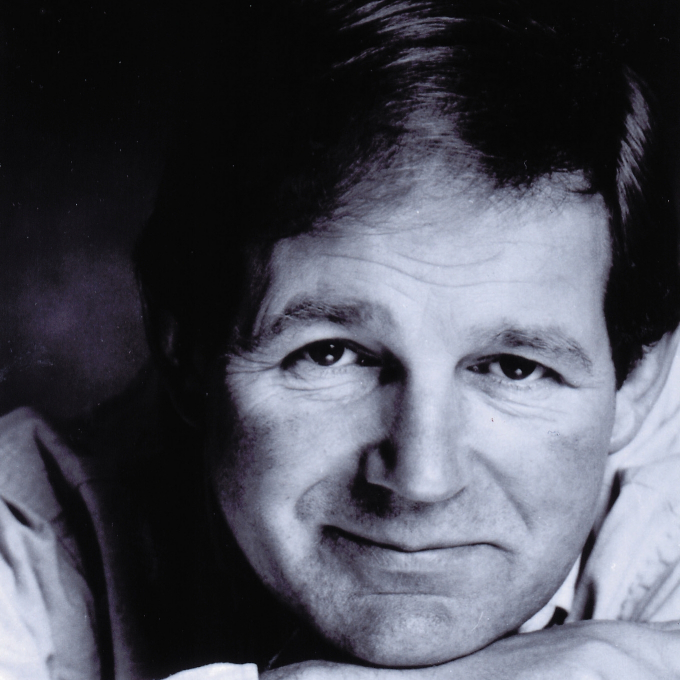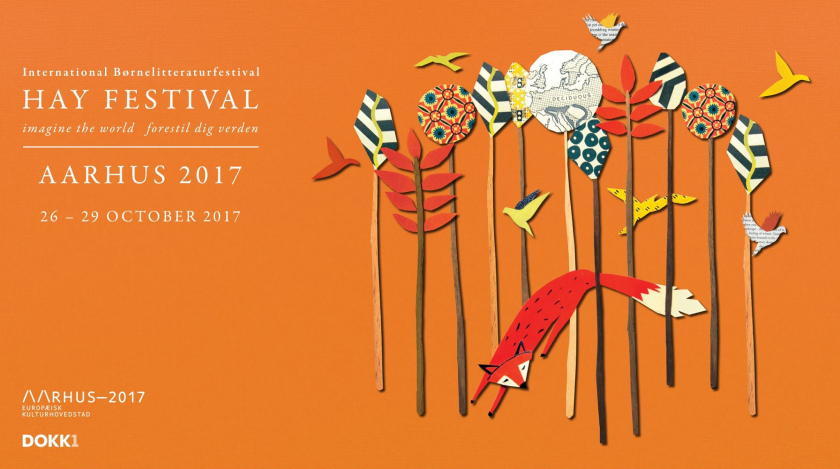
- ©
- Walker Books
Michael Morpurgo
- St. Albans, England
Biography
Michael Morpurgo is the author of many books for children, five of which have been made into films. He also writes his own screenplays and libretti for opera.
Born in St Albans, Hertfordshire, in 1943, he was evacuated to Cumberland during the last years of the war, then returned to London, moving later to Essex. After a brief and unsuccessful spell in the army, he took up teaching and started to write. He left teaching after ten years in order to set up 'Farms for City Children' with his wife. They have three farms in Devon, Wales and Gloucestershire, open to inner city school children who come to stay and work with the animals. In 1999 this work was publicly recognised when he and his wife were awarded an MBE for services to youth. He is also a father and grandfather, so children have always played a large part in his life. Every year he and his family spend time in the Scilly Isles, the setting for three of his books.
Morpurgo has a gift for magical storytelling, and his books also often tackle social issues. Out of the Ashes (2001), for example, is about the foot and mouth crisis. His most popular books include War Horse (1982), which was runner-up for the Whitbread Children's Book Award in 1982 and became an enormous success onstage and on screen; Why the Whales Came (1985), which was made into a film starring Helen Mirren; King of the Cloud Forests (1988), which won the Cercle D'Or Prix Sorciere (France); and My Friend Walter (1988), which was adapted for television. The Wreck of the Zanzibar (1995) won the 1995 Whitbread Children's Book Award. The Butterfly Lion (1996) draws on the author's own unhappy experiences at boarding school, and is the story of a young boy who rescues an orphaned lion club from the African bush. It won the 1996 Nestlé Smarties Book Prize (Gold Award). Kensuke's Kingdom (1999) tells the tale of a boy who survives on an island after falling from his parents' yacht and learns how to survive with the help of the mysterious Kensuke. This book won the Children's Book Award in 2000. Private Peaceful (2003) is set during the first world war and telling the story of two brothers, Charlie and Tommo. It won the 2005 Red House Children's Book Award and the Blue Peter Book of the Year Award and was shortlisted for the 2004 Whitbread Children's Book Award.
In 2003 Michael Morpurgo became the third Children's Laureate, a scheme he had originally helped to set up with poet Ted Hughes. The Laureateship rewards a lifetime contribution to children's literature and highlights the importance of the role of children's books. Morpurgo firmly believes that 'literature comes before literacy' and wants all children '...to discover and rediscover the secret pleasure that is reading, and to begin to find their voice in their own writing...'
He was awarded an OBE in 2006 for services to literature. His recent publications include Half a Man (2014), An Eagle in the Snow (2016), and Flamingo Boy (2018).
Critical perspective
Michael Morpurgo, author of over 100 books, could in many ways be described as an ‘old-fashioned’ writer.
Unlike many of today’s authors for young people, Morpurgo rarely features contemporary family issues such as divorce, inadequate parents or urban social problems. Instead, many of his books have historical and rural settings, and he uses his gift for telling enchanting stories to explore timeless values. As Professor Jean Webb points out: ‘stoicism, courage, trust... an humanitarian approach and listening to each other ... [These values] contain an ethical wisdom which transcends the immediacy of the everyday’ (Inis, Winter 2005). Through the creation of well-rounded and believable child characters, with whom today’s child readers can easily identify, Morpurgo shows that the above values are still relevant to, and much-needed in, contemporary society.
This approach to writing is paralleled in Morpurgo’s charity, ‘Farms for City Children’, which he and his wife Clare set up in the 1970s. Every year hundreds of children from inner-city schools spend time staying on the three farms and helping with the day-to-day work. Thus, in both his literary and non-literary activities, Morpurgo is concerned to help children to see beyond the confines of their everyday experience and to learn not only about the way in which the world functions, but also about their own role within it.
Common themes in Morpurgo’s work include nature and environmental issues, community and interdependence, and relationships between the old and the young. He often depicts people coming together and helping each other in times of crisis, such as war and natural disasters. In The Wreck of the Zanzibar (1995), for example, a small community in the Scilly Isles struggles to survive. The children are an integral part of that survival: like the children who visit Morpurgo’s farms, Laura and her brother have daily chores to do, and they are needed by their family and their community as much as vice versa.
Like his friend and mentor, the late Ted Hughes, Morpurgo has a passionate concern for nature and the environment. Like Hughes before him, Morpurgo feels that inspiring children with an awareness of their connection to the natural world will in turn encourage them to take responsibility for the environment. As discussed above, this is a fundamental part of Morpurgo’s farming charity and, as he points out, these issues also occur frequently in his novels:
'This theme has come into many, many of my books. Usually an old man (I don’t know why) living simply, close to nature, in harmony with nature, giving back to nature more than he takes from it and being protective of the world around him as it protects him. That seems to me to be elemental.' (The Environmentalist, February 2006).
The most apt example of this theme is probably Kensuke’s Kingdom (1999), which has recently been re-printed on FSC (Forest Stewardship Council)-certified paper. A young boy, Michael, falls from his parents’ yacht into the Pacific. The following morning he finds himself on an island, being cared for by Kensuke, a Japanese man who lives there alone. As their relationship develops, Michael experiences a lifestyle at one with nature: painting seashells with octopus ink; taking stranded baby turtles back to the sea; saving an orangutan from hunters. Eventually, Michael must return home, but Kensuke is happy to stay where he belongs. Reviewer Rachel Redford particularly admires ‘the metamorphosis of Kensuke from an angry wild man of the forest to a sensitive father-figure’ (The Observer, 22 July 2001).
Thus Kensuke’s Kingdom combines its tale of the natural world with the story of a touching relationship between a wise old man and a young child. Many of Morpurgo’s novels feature special, heartfelt relationships between the old and the young: the birdman in Why The Whales Came (1985), Billy the old pensioner in Billy the Kid (2000), the grandmother in The Amazing Story of Adolphus Tips (2005) and Granny May in The Wreck of the Zanzibar. These older characters often have a particular sensitivity for, and empathy with, the children, for their relationships are not subjected to the inevitable conflict that exists between parent and child.
Relationships between the old and the new feature in Morpurgo’s work in various ways. Many of his novels re-work ancient myths and folktales: for example, Arthur, High King of Britain (1994), Robin of Sherwood (1996), and The Orchard Book of Aesop’s Fables (2004). Morpurgo explains his reasons for doing this:
'Stories, however wonderful, however universal their appeal, will simply die unless they are told. Each storyteller must re-interpret them for a new audience to enjoy. Grandparents do the same thing with family stories... Without [these stories], as without the ancient tales of old, we are left stranded both intellectually and emotionally.' (The Guardian, 14 January 2006)
Thus, for Morpurgo, the grandparent and the storyteller provide the next generation with an emotional and cultural link through which values, beliefs and experiences are passed on and given new life by the next generation. The individual person and the individual story are shown to be valuable, not merely for their own sake, but as part of a broader spectrum of interconnectedness.
Morpurgo often explores these issues in wartime settings: The Butterfly Lion (1996), War Horse (1982) and Private Peaceful (2003) are set in World War I, while Kensuke’s Kingdom and Billy the Kid are set in World War II. In the midst of dark times which threaten to destroy faith in humanity, Morpurgo poignantly depicts the endurance of love and compassion: in Private Peaceful, for example, the horrors of war and the brutality of Charlie’s execution are set against the endearing love between the two brothers. As Jean Webb points out: ‘Repeatedly, yet with variation, Morpurgo employs the strategies of the meeting of old and young, the sage and the innocent; communication and coming to understanding between different cultures and nationalities... His work demonstrates the crossing of boundaries through story’ (Inis magazine, cited above).
Morpurgo, then, believes passionately in the power of stories to heal, to comfort and to inspire. This is made particularly clear in I Believe in Unicorns, a book about the importance of stories which Morpurgo wrote for The Times for World Book Day 2004 (published 2005). Meanwhile, Singing For Mrs Pettigrew: A Story-maker’s Journey (2006), is a collection of short stories and essays in which he tells the story of how he became a writer. 2006 also saw the publication of two more novels, Alone On A Wide Sea, which takes its title from Coleridge’s 'The Rime of the Ancient Mariner', and Beowulf, Morpurgo’s highly-acclaimed version of this ancient classic, beautifully illustrated by Michael Foreman. Thus, Morpurgo engages actively with both long-standing literary traditions and the next generation of readers, and he places a strong emphasis on school visits and interaction with his young readers.
Morpurgo continues to write prolifically. Subsequent publications for younger children include various animal stories: Animal Tales: Three Stories in One (2008), Wild at Heart: Animal Stories (2008) and This Morning I Met a Whale (2008). Animals also feature strongly in some of his novels for older children, particularly Kaspar (2008), the tale of a cat who travels the world and survives the sinking of the Titanic, and Born to Run (2007), a story of a greyhound that is reminiscent of Black Beauty in the way that the dog passes from one owner to another and survives a series of adventures, including traumatic experiences. Yet, for all the suffering he experiences, the dog continually encounters human beings who are kind, and Born to Run is a poignant depiction of relationships between people and animals, while also making a point about the morality of greyhound racing. Morpurgo, as always, is subtle and skillful, and incorporates social and moral issues into his writing without being self-righteous or detracting from the quality of the narrative.
Entering into even more difficult territory, The Mozart Question (2007) depicts the horrors of the Nazi Holocaust in a manner that is suitable for young readers. Paolo Levi is now an old man, telling a young reporter his story of life in a concentration camp. Though Morpurgo does not shy away from the pain and suffering experienced by Holocaust victims, the narrative structure of a story told in retrospect provides a little distance, along with the uplifting sense of one who survived, which ultimately affirms the strength of the human spirit.
Elizabeth O’Reilly, 2009
